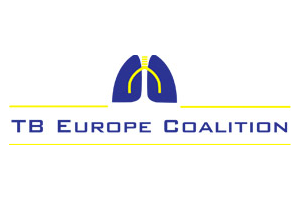
Recently, Oxana Rucsineanu, a member of the TB Europe Coalition Steering Committee, was invited to take part in the WHO Review of the National TB Programme for TB Control in Armenia. Oxana’s invite follows calls from civil society organisations towards the WHO to include a civil society or key affected voice in these NTP reviews. With her extensive experience both of TB itself and of the need to include the civil society voice in TB programmes, Oxana was well placed to take part in this visit to Armenia. Here Oxana shares some of her findings and recommendations from the visit.
Findings
It is promising to see that recently one TB patient group, led by an MDR-TB survivor, has been formed in Armenia. This is considered a big step in making the voices of people affected by TB heard and their needs better articulated. On a similar note, the involvement of ex-patients in patient education started in June 2014 and an ex-MDR-TB patient, Mariam Avanseova, a psychologist by profession, has started initiating peer-to-peer education beyond patients with regular TB. It was fantastic that since this has begun at least three ex-TB patients are willing to get involved in social mobilisation activities.
There are several NGOs active in TB control in Armenia, though the extent to which they are working on the issue is certainly varied. These include: The Armenian Red Cross Society, MSF, Mission East Armenia, Yerevan Home Care, Foundation for the sake of Children’s Health, Real World Real People, and the Positive People Armenian Network. These organisations, particularly ARCS, MSF, and YHC are the key organisations that are working with TB patients using ACSM tools such as psycho-social assistance and information, education and counselling activities.
Worth noting is the fact that due to the contribution of MSF and the good partnership this organisation has with the NTP team, the new drug Bedaquiline is available for MDR and XDR patients through a Compassionate Use Programme. From the perspective of human rights and ensuring quick access to new and effective drugs this is most definitely a step in the right direction. So far, since April 2013, 38 DR-TB patients have been included in the Compassionate Use Programme and even in the prison sector two DR-TB patients have been enrolled.
As a result of funding from the Global Fund to Fight AIDS, TB and Malaria, the ARCS is able to re-train ARCS social workers on TB and MDR-TB so they are able to provide social support to TB patients in the country. It is estimated that the ARCS has delivered motivational packages to at least 96% of all TB patients in Armenia.
Another recipient of the Global Fund has been Yerevan Home Care which has been able to deliver treatment and social support services to over 108 TB patients with difficulties and mobile deficiencies since 2013.
Promisingly, there is a focal person for ACSM activities within the National TB Programme. However, the NTP ACSM strategy is yet to be developed and has no clear budget line for implementing ACSM activities or campaigns. Worryingly, this is a theme that is common across many countries in Eastern Europe and Central Asia and something that needs to change.
Moreover, problems persist with TB related stigma and a general understanding of TB among the public and TB patients. Many TB patients suggest that they would rather keep their status secret and do not communicate with other TB patients. There are currently no official surveys or assessments on TB perception and stigma between TB patients and the general population. Informational campaigns are also minimal, despite being tools with which to reduce the problems of TB-related stigma.
Recommendations
Source: TB Europe Coalition